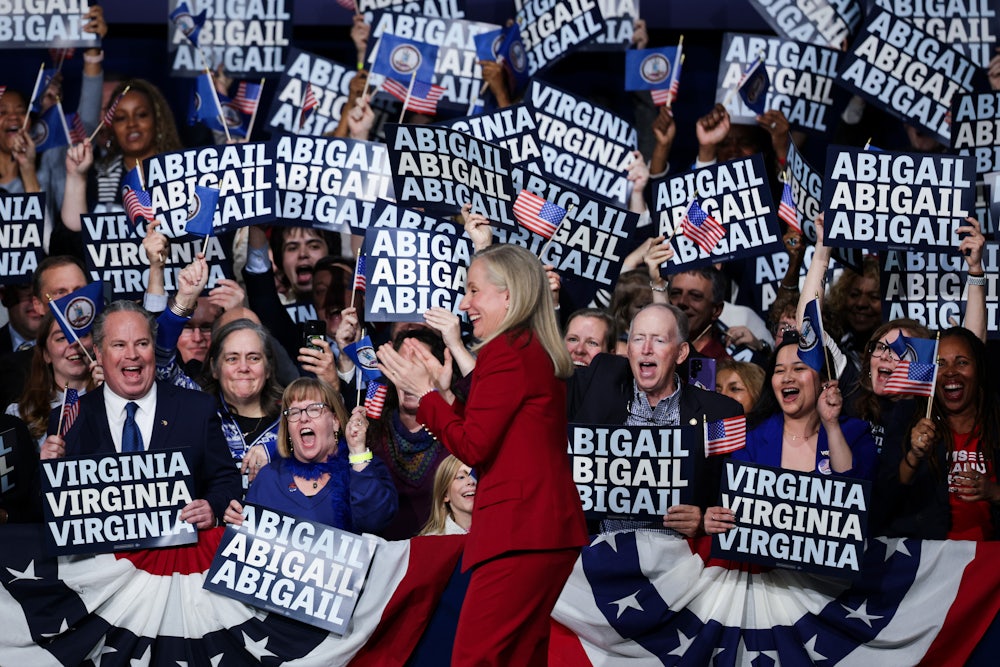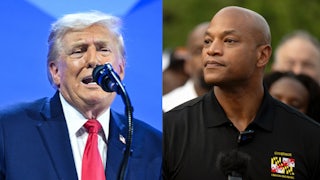This week, Democrats won races around the country, from prominent contests like New York City mayor to obscure, normally sleepy ones. The big theme that united these candidates? The affordability crisis. Up and down the ballot, from the left wing to the center, Democrats promised to help voters with the rising costs of housing, health care, groceries, and more. This was even true of the Democrats who won two spots on the Georgia Public Service Commission by appealing to voters facing high utility bills.
Does this mean voters finally believe that the Democratic Party is focused on economic issues? Because they haven’t been convinced before now.
Ahead of the elections, a new report from the Working Class Project, led by former Louisiana Democratic Governor Mitch Landrieu, summarized their year of research into self-identified working-class voters. It highlighted what many surveys and reports that preceded it had already shown. Across races and ethnicities, many voters, especially non–college educated voters who have been leaving the party, say that Democrats used to fight for the middle and working classes, but don’t anymore. “They could not articulate accomplishments, or recent things that the Democratic Party or Democratic politicians had done for them,” said Ryan Berni, a senior adviser and Democratic strategist for the Working Class Project.
Instead, voters thought Democrats had been too focused on cultural issues. “I think they’ve been so bad economically that they’ve never been focused on it … they’ve always been focused on social issues,” a white man in New Hampshire said, in one of the project’s focus groups.
President Joe Biden had centered his economic policy around helping the working class, and the economy as a whole did well on many measures during his tenure. But he was unable to meaningfully address the inflation crisis in the wake of the Covid pandemic, when the cost of seemingly everything shot through the roof: home prices, rents, groceries, cars—you name it.
Biden’s reelection message on the economy was muddled; he promised a future where people would earn more but did little to address how voters were feeling right then. After replacing Biden atop the ticket, Vice President Kamala Harris talked about price gouging and going after corporations, which was popular with voters. But then she shifted focus toward Trump’s threat to democracy, and her economic policies provided few specifics.
These sorts of missteps—policy vagueness and abandoning bold economic messages—leaves voters without a clear idea of what Democrats are fighting for, said Anat Shenker-Osorio, a political strategist who’s worked with progressive candidates. In contrast, said Berni, voters could easily list what they thought Republicans stood for, even if those ideas were polarizing. “They had some clear answers,” he said. “Strong borders, safety, America first.”
In the absence of a clear Democratic list of values, Republican attacks have been able to fill the void. “The ideas that voters have about Democrats don’t come from what Democrats say,” Shenker-Osorio said. “They come from what is said about them.”
In 2024, the Republican attack line was that Democrats were too “woke” and focused on issues like transgender athletes in school sports. These issues are not atop most voters’ lists of concerns, but Republicans have gotten very good over the past decade at raising the salience of whatever issues—often cultural ones—they think will be to their advantage. “When Republicans decide, ‘This is what we’re going to do, this is what we’re going to make a thing,’ they don’t look at a poll and say, ‘Oh, nobody cares about this,’” Shenker-Osorio said. Instead, they hammer the messages until voters take notice. Democrats are thus forced into a defensive crouch—explaining, say, their position on trans athletes—rather than advancing their own political ideas. And because voters can easily name what they think Republicans want to do, these attacks don’t backfire.
In Virginia, Democratic Governor-elect Abigail Spanberger’s opponent, Republican Lieutenant Governor Winsome Earle-Sears, ran ads trying to repeat that strategy, attacking Spanberger on trans rights in local schools. But it didn’t work. There likely isn’t just one reason for that: Nationwide, voters are upset about President Donald Trump’s actions, Northern Virginia has been especially hit hard by cuts to the federal workforce, and Earle-Sears was trying to replace an unpopular Republican incumbent in the state. But part of the reason is that Spanberger specifically ran on affordability issues instead, and Virginians were worried about cost of living issues more than anything else. “You all chose leadership that will focus relentlessly on what matters most: lowering costs, keeping our communities safe, and strengthening our economy for every Virginian,” she said after she was declared the winner.
Spanberger, and Democratic Governor-elect Mikie Sherrill in New Jersey, have promised to go after middlemen and big corporations inflating health care and grocery costs. In New York City, Mayor-elect Zohran Mamdani has promised even more: that the city will freeze rents, make buses free, and establish city-run grocery stores in underserved areas. But the results they are promising—a lower cost of living—would be the same.
Berni thought the Spanberger and Sherrill races showed the kind of focus that Democrats need. Meanwhile, Democrats in Congress are refusing to help Republicans reopen the federal government without a deal to extend the enhanced Obamacare subsidies, which are critical to helping middle-class families afford insurance marketplace premiums. These are hopeful signs that perhaps the Democratic Party is starting to get it.
If the economy keeps going the way it is under Trump—even higher prices due to tariffs, a slowing job market, and possible stagflation—Democrats may only need to point to his disastrous policies to win in next year’s midterms or in 2028. And Trump has been much more focused on cultural and social issues—dismantling diversity, equity, and inclusion programs around the country; using white Christian nationalism as a model for immigration policy; and banning trans members from the military—than tackling high prices.
But to have a real chance to govern in a lasting way, without losing their coalition like they did last year, Democrats need to promote long-term solutions to Americans’ affordability concerns and speak with a strong, coherent economic message that breaks through the noise. And then they need to deliver.
“Unless there is an actual hard-core populist agenda, and a willingness to confront power … it’s not enough,” Shenker-Osorio said. “People have to believe that you’re going to actually be a solution to their problems.”






